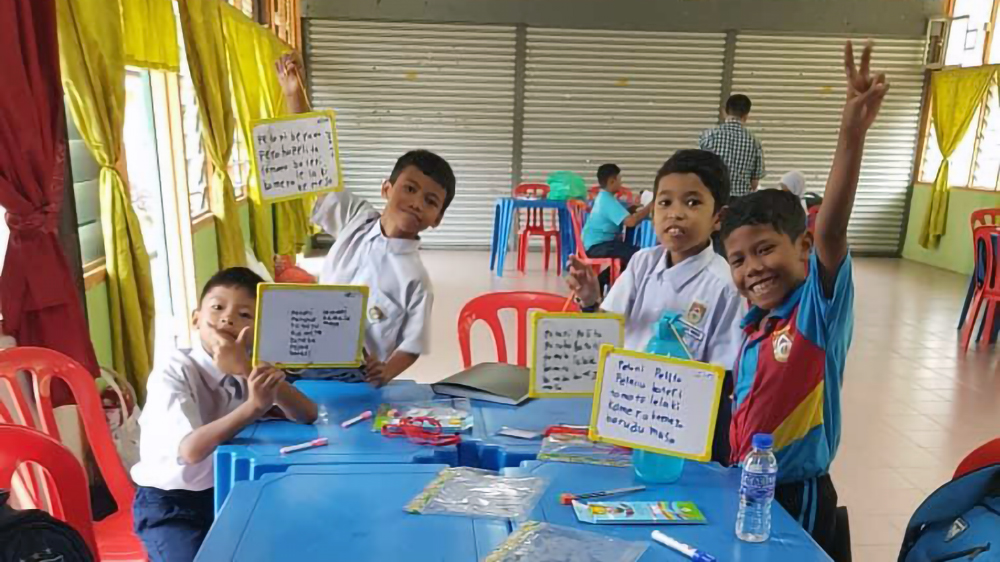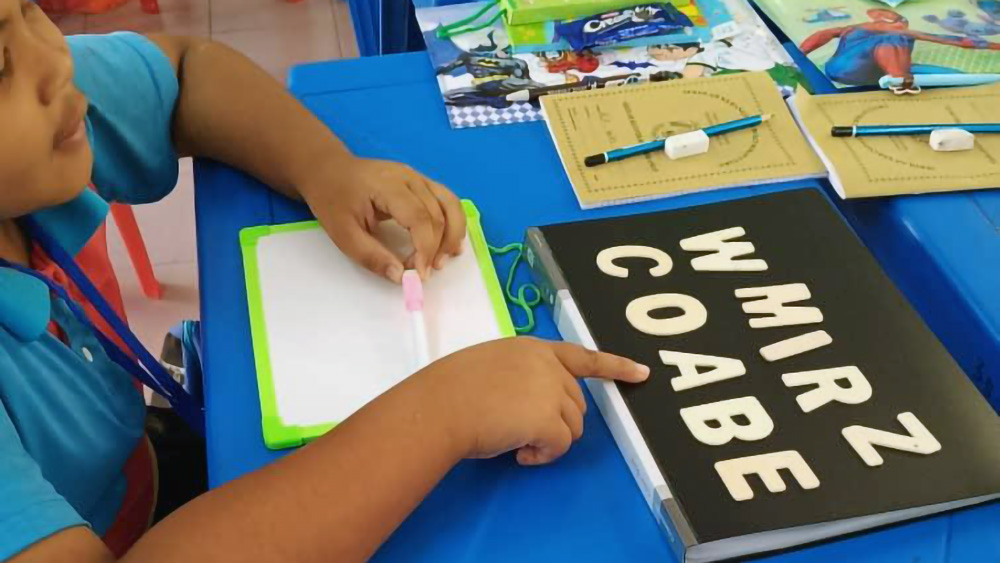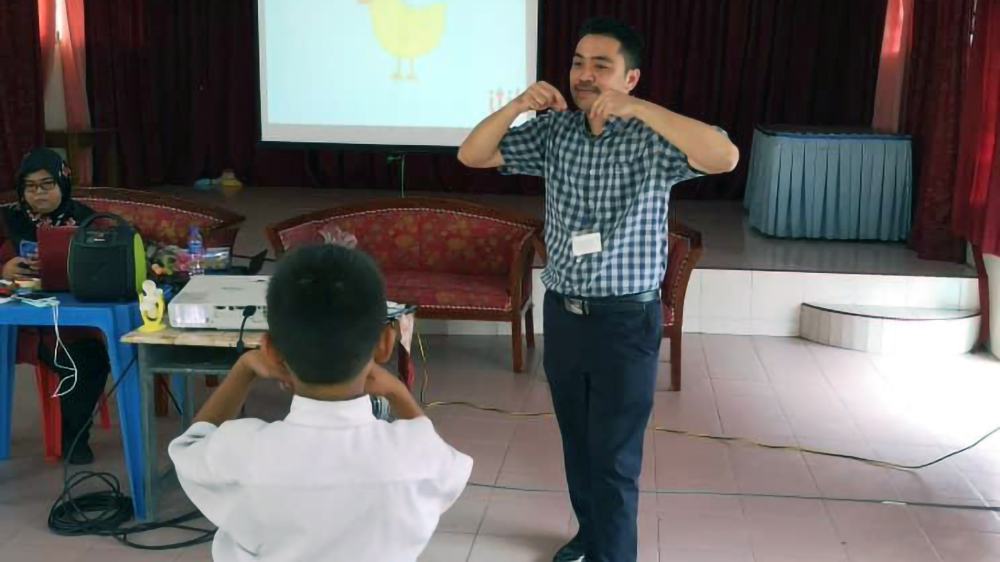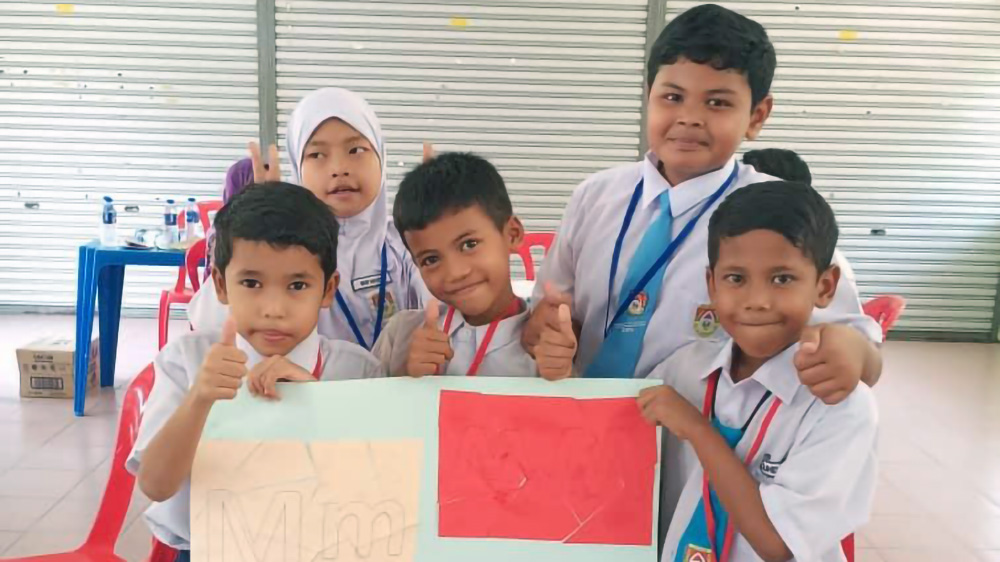Universiti Malaya Community Engagement Centre
In our rapidly evolving world, where change is the only constant, individuals resistant to embracing a positive attitude towards reading risk lagging behind. Reading serves as the primary avenue for acquiring knowledge and skills, making the cultivation of a reading habit crucial, especially from a young age. A significant challenge in today's educational landscape is the absence of comprehensive modules addressing essential elements like teaching objectives, content, methods, and evaluation for effective reading. This gap prompted a study dedicated to designing an Effective Reading Module, comprising three key phases: need analysis, design, and the evaluation of the prototype module.
The need analysis phase commenced with interviews involving eight stakeholders, including four school leaders and four teachers from both urban and rural schools. The primary objectives were to identify literacy needs at the children's level within communities, establish guidelines for an effective reading module, and pinpoint challenges in current educational practices. The consensus among respondents was that childhood is the optimal stage for the teaching and learning process due to its inherent receptivity to new knowledge and skills. This phase also highlighted the pressing need for a comprehensive module covering teaching objectives, content, methods, and evaluation components. Teachers shared challenges they face, such as managing mixed-ability students in sessions, the necessity to independently develop teaching components, and the perceived lack of appeal in Ministry of Education-supplied teaching materials.
Transitioning to the design phase, fifteen literacy experts with over a decade of experience played a pivotal role. This diverse panel, including Global Teacher category educators, NGO representatives, Ministry of Education officers, Federal Inspectors, and school leaders, engaged in a Delphi Fuzzy study spanning three rounds. The method commenced with expert interviews, progressed to identifying consensus items from interview findings, and culminated in achieving agreement on these items using the Delphi Fuzzy method. Moving forward, the study seamlessly transitioned into the evaluation of the prototype module, adopting an action research methodology at a FELDA national school. Action research, characterized by iterative cycles of planning, acting, observing, and reflecting, aimed to enhance teaching and learning effectiveness.


The assessment phase employed a variety of methodological approaches across multiple rounds, ensuring a comprehensive understanding of teaching and learning dynamics. Qualitative observations provided insights into classroom interactions, teacher-student engagement, and the overall learning atmosphere. Simultaneously, surveys gathered perceptions from both teachers and students, offering a dual perspective on the module's impact. Quantitative assessments, including pre- and post-tests, provided measurable indicators of the module's effect on student learning outcomes.The iterative nature of action research facilitated ongoing reflection and adaptation, ensuring the continuous improvement of the module. Insights gained from observations, interviews, surveys, and assessments informed adjustments, aligning the module with evolving student needs and the educational context.
In conclusion, this comprehensive study, spanning the need analysis, design, and evaluation phases, addresses the challenges hindering effective reading promotion. It not only identifies critical components of an effective reading module but also engages a diverse panel of experts to ensure robust design principles. The subsequent evaluation phase, rooted in action research, demonstrates a commitment to practical application and continuous improvement. This holistic approach holds the potential to inform educational practices and contribute to the ongoing evolution of effective reading modules in a swiftly changing educational landscape.


Project information
Project Execution: 20 Months
Location: Pahang
Target Community: students , parents, teachers and school leaders
Number of Community benifited: 60 students and teachers
Outcome of the Project
Needs Analysis Phase: In this initial phase, the focus is on identifying the requirements for an effective teaching and learning module. Two primary objectives guide this phase: firstly, recognizing the needs of an effective instructional module, and secondly, exploring the challenges associated with the effectiveness of teaching and learning, particularly among students with limited reading abilities.
Design Phase: The design phase is centered on creating the main features of an effective teaching and learning module, specifically in terms of objectives, content, delivery, and assessment. This involves generating key characteristics for each aspect and evaluating the strategies for achieving these characteristics in effective teaching and learning.
Assessment Phase: The assessment phase is multifaceted, encompassing the identification of factors contributing to students' limited reading abilities, the evaluation of the effectiveness of the teaching and learning module, and an examination of the achievements in teaching and learning before and after attending guidance classes using the effective teaching and learning module.
Impact of the Project
Needs Analysis: The initial phase involves an analysis of the requirements for designing an effective teaching and learning module. This encompasses understanding the necessities for the creation of a module that facilitates successful instruction and learning. Additionally, it involves conducting a thematic analysis of stakeholders' perspectives to gain insights into their views and expectations.
Design Phase: The design phase is dedicated to formulating the structure of an effective teaching and learning module. This entails defining the key components of the module, such as objectives, content, delivery methods, and assessment strategies. Moreover, it involves analyzing the consensus among experts using the Delphi Fuzzy technique, ensuring a comprehensive and well-informed design.
Assessment: The final phase focuses on the evaluation of the prototype module. This evaluation involves assessing the effectiveness of the module in real-world conditions. Furthermore, it includes a comparative analysis of students' achievements before and after utilizing the effective teaching and learning module, employing an exploratory approach. This phase aims to gauge the practical impact of the module on students' learning outcomes and overall educational experience.
|
|
|
|
|
|
|
|
|
Last Update: 16/11/2023